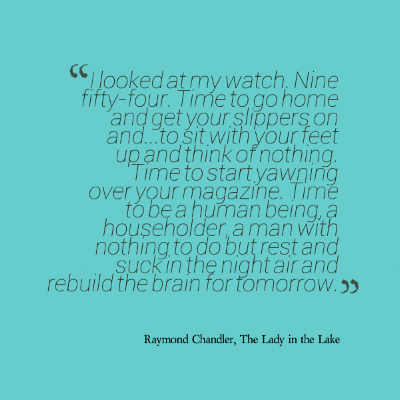In anticipation and celebration of summer vacations ahead, here's a short chapter, "Rejuvenation," from my first book, Just Think: Nourish Your Mind to Feed Your Soul.
~~~
Right before a vacation, my mental stress seems to peak. I can hardly concentrate or generate ideas. It is hard to think a thought through to completion. I want to leave my mind’s contents on my desk alongside my papers. I long to lie on a beach with an empty mind, using it only to read the novels packed in my bag.
Once en route, I want to escape immediately to vacation mind-set. I try hard not to think about anything required of me. This attitude prevails for some time into the vacation. Then, slowly, almost imperceptibly, my mind is piqued by some remembrance of a project, goal, or interest. I may even visit a bookstore and come away not with an escapist paperback but a serious book about that project, goal, or interest. Eventually I take out my notebook and write down an idea. I’ll do such and so when I get back, I think. I get excited.
This pattern of revival is confirmed by Anne Morrow Lindberg in Gift From the Sea: “At first, the tired body takes over completely. As on shipboard, one descends into a deck-chair apathy . . . And then, some morning in the second week, the mind wakes, comes to life again. Not in a city sense—no—but beach-wise. It begins to drift, to play, to turn over in gentle careless rolls like those lazy waves on the beach.”
What accounts for the transformation from a prevacation squeezed-shut mind to a mind open like a sponge? Quite simply, a true and solid break (as opposed to a break of the sort that can be as full of requirement, action, and chaos as any other day). A solid break is a time in which the mind can empty itself of overused and boring thoughts. A time in which the superfluous can boil off, leaving a rich core concentrate.
During a solid break, the tedium can be forgotten and mental ruts washed smooth. The original passion of projects and goals can refuel the energy that the extensive “to-do lists” associated with them have spent.
During a solid break, you can take back your mind to do with as you please. You can use it yourself or just let it exist. Let it lie with you on a beach chair. Let it move only when it’s ready.
Without downtime, the mind becomes as ineffective as a muscle that is continually contracted or a sponge that is never squeezed out. Solid breaks of one, two, or more weeks probably provide maximum recovery time, but shorter breaks and daily downtimes, in the form of relaxation and an adequate night’s sleep, are also valuable and critical.
Shockingly, a weekly day of rest has the same stature within the Ten Commandments as the admonition against murder. “Six days you shall labor and do all your work, but the seventh day is a Sabbath, to the Lord your God. On it you shall not do any work...” A weekly day of rest, in full knowledge of bills to be paid and work on the desk, of towels to be washed and groceries to be bought. A weekly day of rest taken freely, proactively, worshipfully, without guilt. Rejuvenation as commandment, not luxury.
~~~
[Photo: taken on a beach on Cape Cod last summer when we were there for our son's wedding.]





